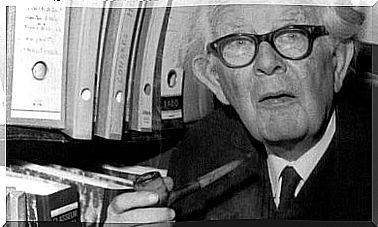Neither Wolf Nor Dog: The Psychology Of An Elderly Indio

“ The earth is deep, and its wisdom is great. Listen to the stones and listen to the wind.
If each of us did something for the others, there would be no needy people in the world “.
In his book Neither Wolf nor Dog: On Forgotten Roads with an Indian Elder , Kent Nerbun reports the testimony of a Lakota Indian. It is always worth remembering the tradition of these peoples , with a lifestyle so different from ours.
And why? , you ask. First of all because it never hurts to learn something new every day, especially if they are teachings that have to do with our nature as human beings. Sometimes, without even realizing it, together with the morning coffee we swallow a mouthful of haste, commitments and worries , closing the door to everything that instead would bring us a breath of oxygen and light. Everything that is really important we have.
The philosophy of the natives of Lakota America, on the other hand, has its roots in simple things and transmits to us a real inheritance of psychological knowledge that deserves to be remembered and taken into consideration. It is a type of wisdom that can help us increase our social and personal skills, and therefore can be really useful.
The legacy of an anziona Lakota
– Active listening : Lakota Indians often reproached whites for always having the need to fight to solve problems. They said they were unable to listen to each other, to learn from each other. It is certainly an essential dimension in many branches of current psychology: active listening. “ We Indians know silence. We are not afraid of it. In fact, for us it is more powerful than words. Our elders were educated with silence, and they passed on this knowledge to us: observe, listen and then act, they told us. This is the best way to live. “
– Learning skills: Having an open mind, knowing how to observe, learn to adapt and survive. Lakota Indians live from nature and understand the need to learn day by day from it and their people, to improve the quality of their life.
Respect for them is essential, so they didn’t understand why whites didn’t share their point of view. “ Observe the animals, see how they take care of their puppies. Observe the elders, see how they behave. Look at the white man, see what he wants. The first thing is to always observe, keeping your heart and mind still: only in this way can you learn. When you have observed sufficiently, you will be able to act ”.
– Negotiation and Conflict Resolution : You have surely read and learned many of the tips found in hundreds of books and articles on conflict resolution, based on different psychological theories. The need to be able to listen actively, to empathize with the other to understand their point of view, and to be assertive enough to be able to express our thoughts and needs aloud.
The Lakota Indians have these priorities very clear: the need to listen and to know when to be silent , to understand each other better. A lifestyle very different from ours.
“ At their parties, everyone tries to talk. At work they do nothing but organize meetings where they interrupt each other, and everyone talks all the time. They call it “problem solving “. When they are in a place where there is too much silence, they get nervous. They must fill the space with sounds. This is why they speak impulsively, even before they know what they will say “. For the Indians, this behavior is very disrespectful, even stupid. “ If you start talking, I won’t interrupt you. When you are done, I will reflect on my opinion on what you said, trying first of all to understand your point of view “.
The value the Lakotas placed on words was essential. For them, they were “seeds to plant and let grow”. Perhaps for this reason they were able to understand each other and maintain such a strong union of their people and families.
Beings out of the ordinary for Westerners, who never understood the reason for their total calm, their extraordinary harmony and that primitive air intimately linked to nature.
It may seem like a strange and somewhat antiquated people today, but their legacy is filled with great truths and simple teachings, which are worth reading and listening to. In silence, just for us … To help us reflect.









